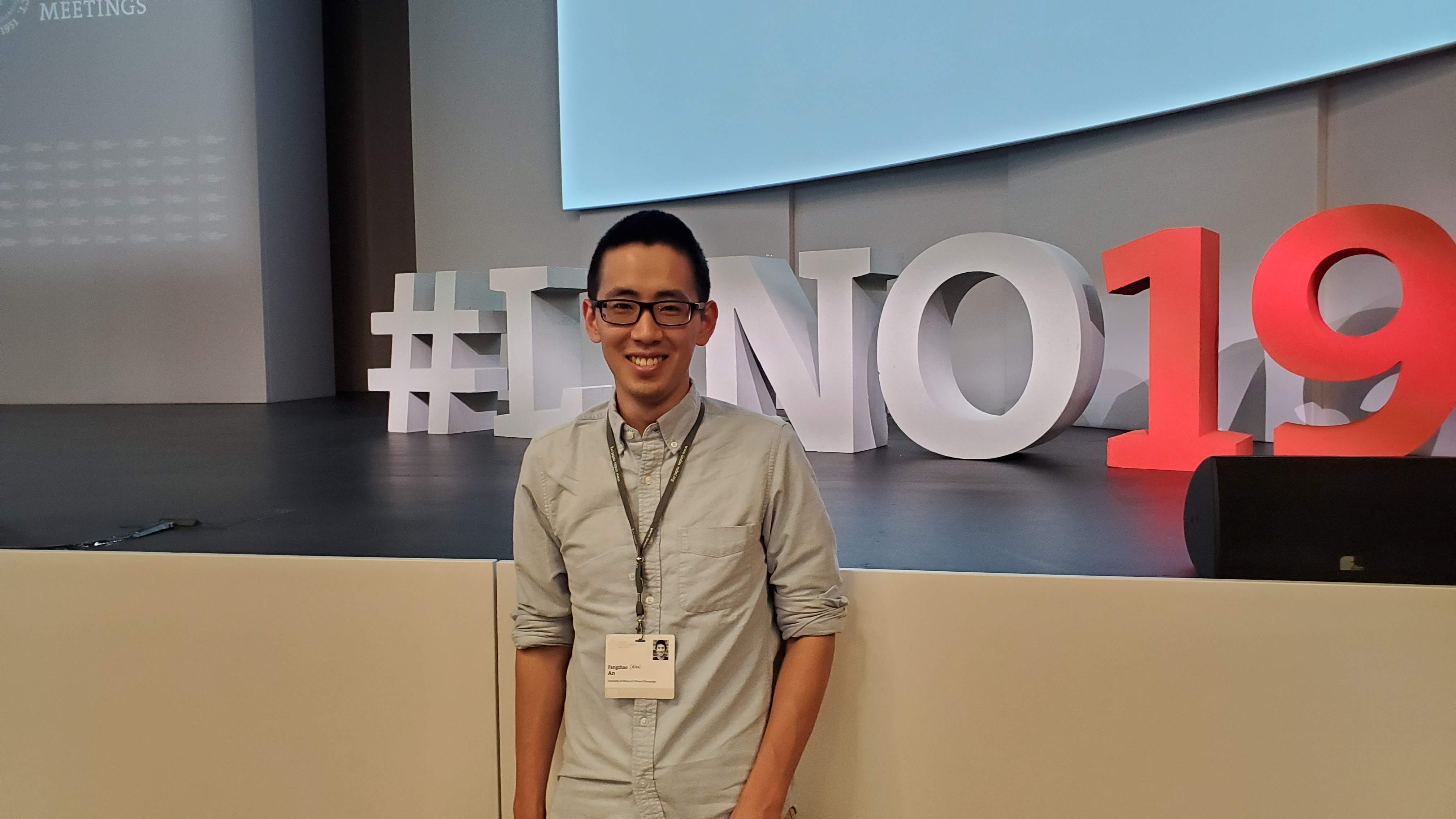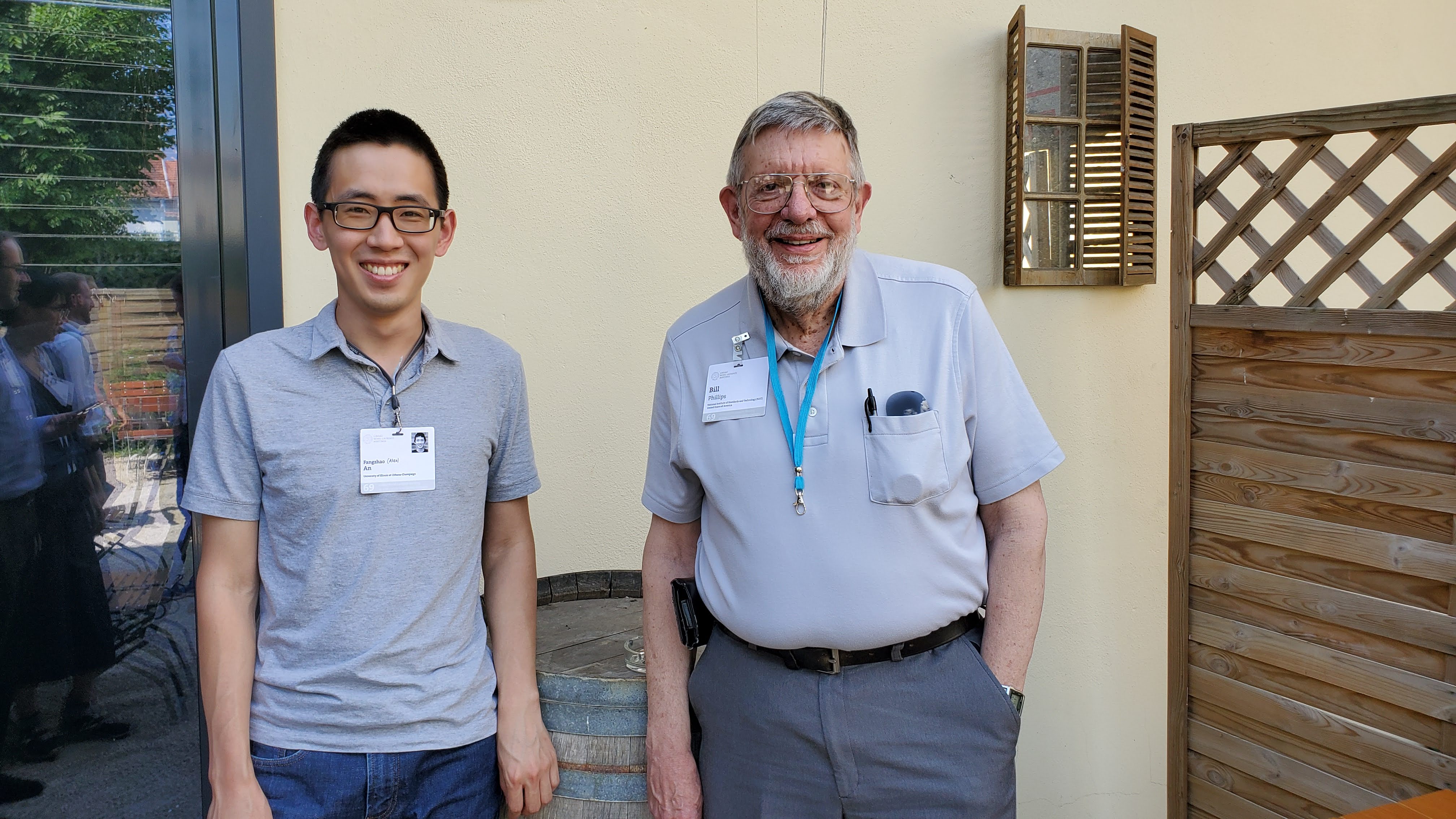Lindau retrospective
Earlier this month, I went to the Lindau Nobel Laureate Meeting on an island in southern Germany, where I got up close and personal with the biggest of big wigs in physics: Nobel laureates. And also 500+ young scientists from all over the world.
 My LinkedIn profile picture
My LinkedIn profile picture
I was really nervous the month, week, and day before the conference, to the point where I couldn’t really respond when people asked me if I was excited to attend. Of course I was excited, but the anxiety and nervousness of just having to meet so many people was overwhelming. I’ve never been one for small talk, breaking the ice, and networking in general, so in the past I’ve avoided talking to people outside my group at conferences… not a good look for an aspiring scientist. I was afraid that I’d get stuck in my comfort zone again at Lindau, hanging out with only the American crowd. So I went in with a very intentional gameplan: minimize contact with the Americans, and talk with many people from other countries.
Thankfully, the atmosphere at Lindau was very transparent: everyone was there to network, so the usual awkwardness that I’ve associated with networking was absent. Talking about research and life came much more naturally than I expected, helped by the enthusiasm of everyone there. From what I talked about and learned, a few things really stood out:
- There’s a lot of astrophysicists out there.
- There’s a lot of post-docs out there.
- There aren’t a lot of Asian-Americans out there. (alternatively: There are a lot of Asians out there.)
Maybe it was because astro was part of the “theme” of the meeting, but I felt like every other person I talked with was involved with some huge astro collaboration that I’d never heard of. There was one striking moment when I was listening to two astro folks talking about their different fields, and I realized I had lumped all of astro into one category. I may not know any more about astro experiments compared to before I went to Lindau, but now I can at least appreciate the size and breadth of the field.
I really liked the distribution of young scientists: people in the last year of their undergrad, masters, PhD, and post-doc. The gaps between these groups are obvious in retrospect, but they didn’t feel significant at all when I was there - we were all talking at the same level. Several times I was surprised to find out the person I was talking to was an undergrad, or an assistant professor. I’ve been shying away from a future in academia (and will probably continue doing so), but this experience made the path seem a lot less thorny.
One thing that caught me off guard was how different (?) I felt at the conference as a Chinese-American. My nametag had “Fangzhao An” written on it, and I wrote in my middle name “(Alex)” to make it easier on people reading it, which ended up drawing attention in every conversation I had. Even after hearing my thick American (Californian) accent, many people were still surprised that I was born in America. Having grown up around Asian-Americans in all areas of America, this reaction caught me totally off guard and I’d never felt so aware of my identity as Chinese-American. I’ve since been debating if this is a benefit or a drawback: somehow it lets me talk more easily to Asians and Americans, but does it also prevent me from getting close to either? I wonder.
 Me and Bill Phillips
Me and Bill Phillips
The main act: Nobel Laureates. I stood in line after every talk with my phone out, ready for the photo finish. It seemed supremely awkward every time, but I’m glad I got photos with so many Nobel laureates. Unfortunately, I missed a photo opportunity with Ted Hansch, and my personal hero Steve Chu was always swarmed by too many people for me to get some N-on-one time (N<10).
As for “meaningful” exchanges with Nobel laureates, I managed to squeeze out a few: lunch with Bill Phillips (above), talking with Carl Wieman, and hanging out with Dave Wineland. Though the most impressive person I met was Wolfgang Ketterle: his no-nonsense, direct attitude was starkly different from the other laureates, but it grew on me during the career panel and later in his lecture. His understanding of cold atoms penetrates several layers deeper than mine… and add to that his well-trained mastery at public speaking. What a powerful impression.
I’m really glad I went, though I don’t know if I should have stuck with my gameplan. While I got to meet a lot of people, how many of those connections were actually meaningful? Who knows. At least I got a lot of good material for my new instagram account.